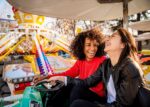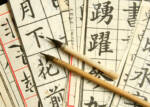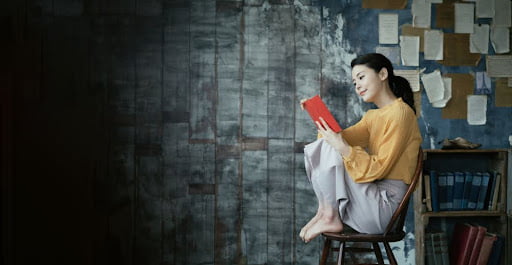Dragon Boat Festival – 端午节 Duānwǔ Jié
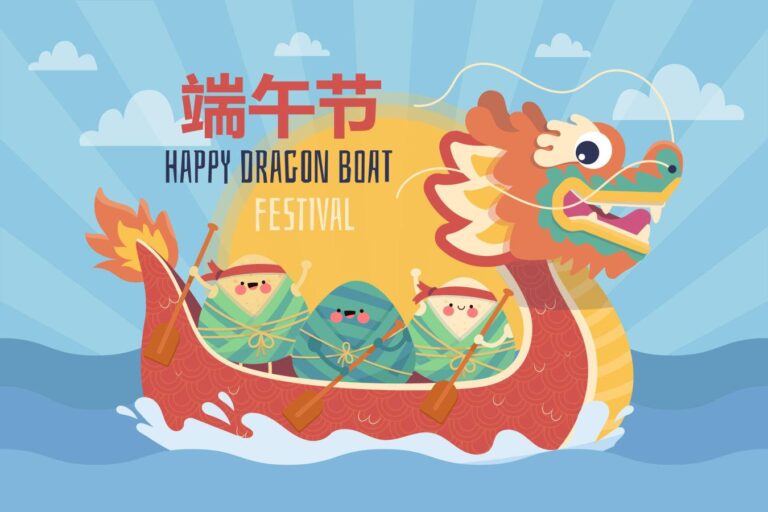
端午节 Duānwǔ Jié, the Dragon Boat Festival, also known as Duanwu Festival or the Double Fifth Festival, happens every year in the fifth month, on the fifth day in the Chinese lunar calendar.
‘Wu’ (午) in the name ‘Duanwu’ is pronounced similar to the number 5 (五 wǔ) in multiple Chinese dialects.
Origin
Three legends evolve around the Dragon Boat Festival.
The best-known one is the story of Qu Yuan:
The festival commemorates Qu Yuan (c. 340–278 BC), the Chinese poet and politician. Qu was serving in high office for the kingdom of Chu. However, he got exiled during the Warring States Period of China.
When the Chu State fell to the State of Qin, he went to the Miluo river and drowned himself.
The local people rushed to their boat to save him or at least recover his body. They couldn’t find him anywhere, so they threw zongzi riceballs in the river so the fish would eat those instead of the dead body. It is believed this is also the origin of the zongzi riceballs.
The other two legends of the Dragon Boat Festival are the ones of Wu Zixu and Cao E:
伍子胥 Wu Zixu (722–481 BC), who was also from the state of Chu, however, before the time of Qu Yuan, was the minister of King Fuchai.
King Goujian of the state Yue sent a beautiful woman named Xi Shi to the King of Chu to distract him from his state affairs. When minister Wu expressed his concerns, the King had him executed and thrown into the river near Suzhou. Since that day, people commemorate Wu Zixu in the Suzhou area.
曹娥 Cao E (130–144 AD) a girl from Shangyu whose father was the shaman Cao Xu 曹盱 who presided over local ceremonies. In 143, while holding a ceremony to commemorate Wu Zixu, the father accidentally fell into the Shun River. The girl went to find her father in an act of filial piety (respecting your elders), and when she couldn’t find him, she threw herself in the river, too. The river was renamed the Cao’e River to commemorate her.
Superstition & Beliefs
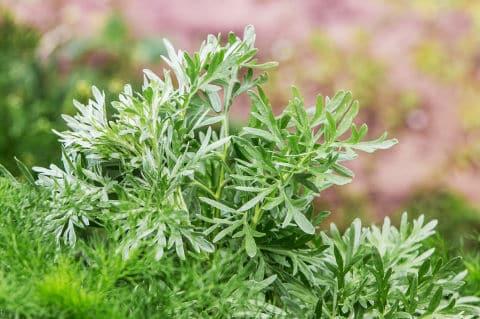
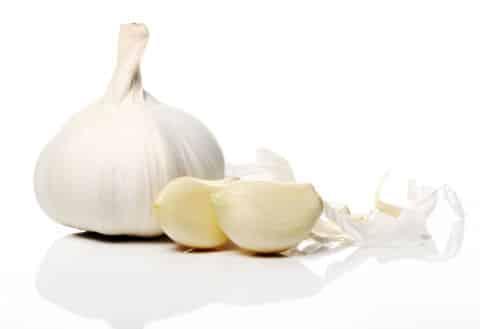
The Chinese believe the fifth month on the lunar calendar is unlucky because natural disasters and illnesses were more common in that month.
Poisonous animals also appear again in the fifth month, such as snakes, centipedes, and scorpions. Some people stick up pictures of these animals on their walls and stick needles in them, and some people will put paper cuttings of these animals around the wrists of their children to ward off these harmful animals.
People would put mugwort, calamus, wormwood, a few other flowers or plants, and garlic above the doors to ward off the evil spirits.
Big Ceremonies have since been held to ward of bad luck and diseases.
Food on the Dragon Boat Festival
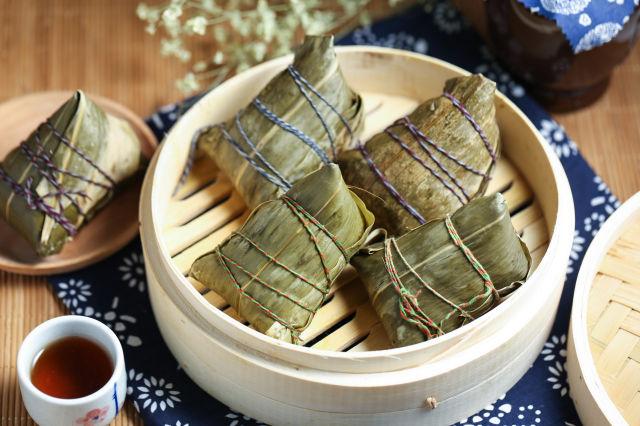
粽子 Zongzi is the most traditional food for the Dragon Boat Festival. They are sticky rice dumplings wrapped with bamboo leaves.
They are to commemorate the death of Qu Yuan, a famous Chinese poet who drowned himself in the Miluo River.
Realgar Wine
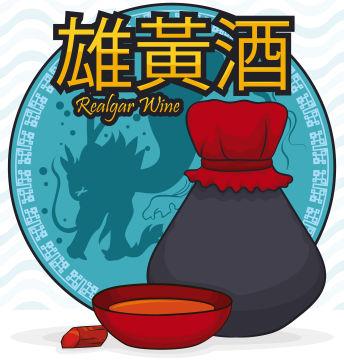
雄黃酒 Xiónghuáng Jiǔ
Realgar Wine
There is an old saying in China: “Drinking realgar wine drives diseases and evils away!”
Realgar wine consists of yellow wine (黄酒 huangjiu) combined with powdered realgar, a yellow-orange arsenic sulfide mineral.
It is believed the ingestion of the wine and spreading it around the house will ward off evil spirits and disease on the day of the Dragon Boat Festival. However, it is considered unsafe to ingest this wine by today’s standards.
Activities on the Dragon Boat Festival
The most common activities for the Dragon Boat Festival are preparing and eating zongzi (riceballs), drinking realgar wine, decorating the doors with flowers and garlic to ward off evil spirits and bad luck, egg balancing, and dragon boat races.
Dragon Boat Races
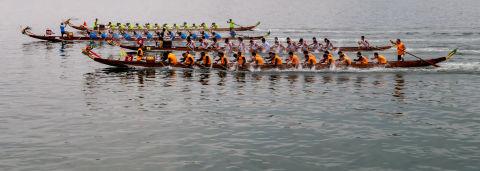
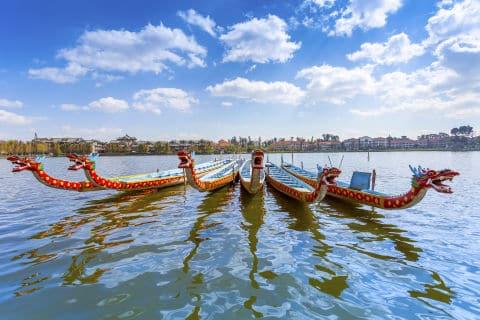

The Dragon Boat Races are a tradition that is over 2500 years old. This tradition originates from the story of Qu Juan, the Chinese poet that drowned himself in the Miluo River. The common people rushed to their boats and into the water to save him or recover his body.
Since then, the Chinese make wooden boats in the shape of the dragon, the fifth animal of the lunar calendar, which is the strongest and most powerful animal.
A team for the Dragon Boat races is usually 22 members: 20 paddlers, 1 drummer, and 1 steersman. The drummer sits at the front of the boat and commands the paddlers with voice calls and hand signals. The drummer beat helps with the tact of the paddling. The steersman stands at the back of the boat and uses a sweep oar to steer the boat in the right direction.
The winning team of the Dragon Boat race will have good luck in the next year.
The fifth lunar month is also in line with the summer solstice, the longest day of the year in the northern hemisphere.
Egg balancing
This game is an old Chinese tradition for the Dragon Boat Festival. If you can make an egg stand by noon, you will have good luck next year. Egg balancing is more about fun than science for both old and young.
5-colored silk-threaded braid
In some Chinese regions, parents braid silk threaded bracelets with five different colors and put them on their children’s wrists. They believe that this will also help keep evil spirits and diseases away.
Greetings For the Dragon Boat Festival
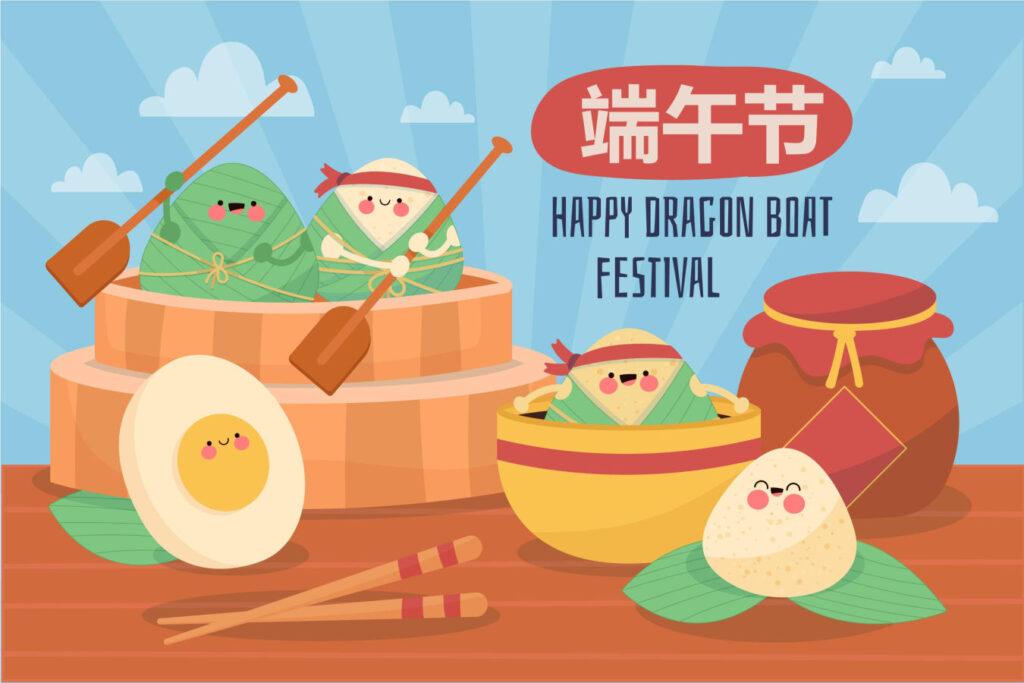
端午节安康!
Duānwǔjié ānkāng!
Healthy Dragon Boat Festival
端午节快乐!
Duānwǔjié kuàilè!
Happy Dragon Boat Festival
端午节好
Duānwǔjié hǎo
Happy Dragon Boat Festival
If you want to know how to thank someone that wished you a Happy Dragon Boat Festival, read this post.
Overall, the Dragon Boat Festival is a celebration for young and old to ward off bad luck and is a day full of fun activities like the Dragon Boat races often cheered on by the crowds on the sides of the rivers, egg balancing, delicious food, and some dancing.
Learn how to pronounce and also learn Chinese characters for free with our 14-day free trial giving you full access to our entire curriculum.
You will be able to read, write and pronounce Chinese characters and get an overall “plan of attack” for your ENTIRE Chinese journey all the way to fluency and literacy.


